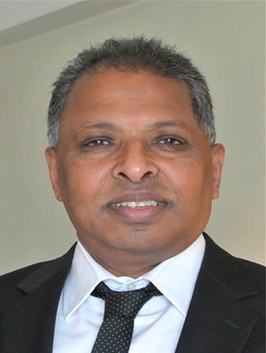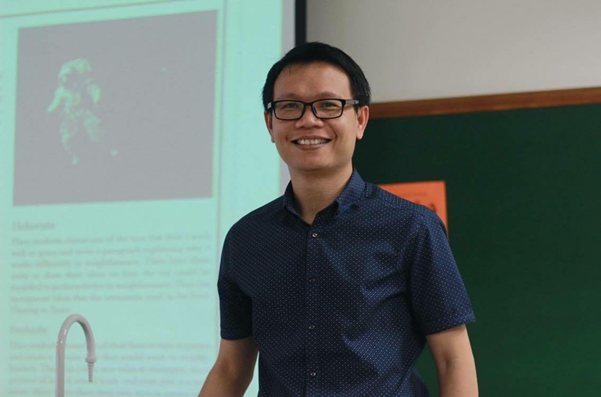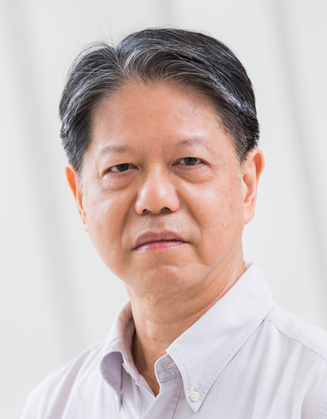Keynote Speakers

Prof. Som Naidu
Executive Editor of Distance Education
Prof. Som Naidu is former Pro Vice-Chancellor (Flexible Learning), and Director of the Centre for Flexible Learning at the University of the South Pacific, and currently Principal Associate of Technology, Education and Design Associates — a Melbourne based educational technology consultancy service.
Prof. Naidu has spent most of his professional life in the higher education sector in a variety of roles to do with enhancing learning and teaching in open, flexible, distance, online, and technology-enhanced environments, as well as education more generally in a variety of jurisdictions. He possesses undergraduate qualifications in Education from the University of Waikato in New Zealand, and graduate qualifications in Educational Technology from Concordia University in Montreal, Canada.
As a former president of the Open and Distance Learning Association of Australia, Prof. Naidu has served as Executive Editor of the journal Distance Education (since 1997). In May 2014 the Open University of Sri Lanka awarded Prof. Naidu a D.Litt. (Honoris Causa), in recognition of his extensive contribution to the field of open, flexible, distance and e-learning both regionally and internationally. And in July 2020, Advance Higher Education, UK, admitted Prof. Naidu as a Principal Fellow of the Higher Education Academy for his commitment, contribution, and strategic leadership in the scholarship of learning and teaching globally.
- ORCiD: http://orcid.org/0000-0002-7480-8120
- LinkedIn: https://www.linkedin.com/in/som-naidu-phd-d-litt-pfhea-346a7199/
- Email: [email protected]
- Twitter: @sommnaidu
- Profile: Legends of online learning: https://www.acode.edu.au/mod/page/view.php?id=4039
Useful lines of inquiry: How research on digital learning can inform pedagogical practice!
In a response to Michael Glassman on Dewey and Vygotsky and their views on the role of society, experience and inquiry in educational practice (Glassman, 2001), Margaret Gredler and Carol Shields point to our collective failure to read what has gone on before and to read it correctly (Gredler & Shields, 2004). Their poignant commentary served as inspiration for an editorial of the journal “Distance Education” I wrote―with equal despair―about lessons we are not learning or choosing to ignore in relation to research on our pedagogical practices (Naidu, 2015). A reminder of these remarks, and their implications for pedagogical practice seems appropriate at this time given recent developments in artificial intelligence, and the adoption and rebadging of already familiar pedagogical practices such as flipped learning, and emergency remote teaching as novel phenomena. None of these developments lack precedence, however. Indeed, the educational technology literature is littered with these kinds of reactions, exhortations, and controversies. They reflect our failure to critically examine the conversations that are already going on around research questions before starting our own investigations. When starting a new conversation, researchers ought to specify foremost, why is there a need to do so, and who is likely to be interested in joining that new conversation. And when joining a conversation, the focus needs to be on what their unique contribution is to what is already known. Do they have something new and unique to say on the subject, and if so, then how is it considered new, unique and worthy of attention? This keynote will explore how researchers can meet this most basic of tests, to be able to focus their investigations on what is new about their research questions; what do they add to the conversation that is already going on; and most importantly, how do they improve pedagogical practices?
References

Assoc. Prof. Dr. Chatree Faikhamta
Kasetsart University
Dr. Chatree Faikhamta is an Associate Professor at Faculty of Education, Kasetsart University, Thailand. He has taught a full range of undergraduate and graduate courses in science education such as chemistry methods course, research design in science education, science teacher professional development, etc. His research areas focus on STEM education, pedagogical content knowledge (PCK), and action research. He has given several invited/plenary talks at workshops and international conferences. He has received several important recognitions to his research career, including KU Young Research Star by Kasetsart University. Chatree directed the nationally funded Developing PCK-based professional development program for prospective science teachers and their school supervisors. He is involved in collaborative research in many countries such as Canada, Japan, Korea, Spain, Taiwan and UK.
CiRA-Core: The Connector for Developer Teachers and User Teacher to Artificial Intelligence
Technology becomes the essential connector of transdisciplinary education as known as STEM education and as the tool for enhancing learners to become a technologically literate person and use information and technology as young innovators. However, there were many studies aimed on the learning in-novation developments but only a few teachers could choose or access the appropriate platform to integrated technology in their lessons. This study aimed to sur-vey the similarities and the different views about the nature, purposes, and functions of technology in education between 17 CiRA Core agent-teachers and 69 user-teachers to using CiRA Core through an open-ended questionnaire. Data were analyzed by content analysis, and all codes were then categorized to find the patterns and become the theme. The results visualized the 3 aspects which included the nature, the purposes, and the functions present the characteristic of reflection, connection, and driving the integrated technology of CiRA Core in the instructions consecutive. The most different view between them was found at the purpose of integration of technology connects the new norm teaching (differ 47.31%), while the most similarity view between them was found at the purpose of integration of technology connects the 21st classroom. However, this study found out the most average differ view of nature of technology. That would be-come an important issue for the future study of professional development to emphasize this aspect for more synchronizing between the developer-teachers and the user-teachers to integrate technology in the instructional design.

Ir. Dr. Lam-for Kwok
BScCS (Hons) MPhil. PhD (QUT), CEng, FBCS, FHKIE
HKCT Institute of Higher Education
Ir. Dr. Kwok is an information technology (IT) professional by training in the UK and Australia and has devoted his whole career in education and in nurturing young IT professionals. He is currently a Governor in the HKCT Institute of Higher Education (CTIHE). Prior to this, he was an Associate Professor in the Department of Computer Science in City University of Hong Kong. He has acted as the Conference Chair of International Conference of Blended Learning (ICBL) and International Symposium of Educational Technology (ISET) from 2016 - 2021. His research interests include cybersecurity, computers in education and smart learning environment.
Technology-enhanced Cybersecurity Education: a VPET Approach
There is a shortage of skilled talents in the field of cybersecurity at all levels globally. The shortage of the skilled professionals itself becomes a real threat to the society. While education and training aim to produce graduates to fill the job market, the industry complains on their lack of practical skills. To provide more hands-on exercises in obtaining the necessary skills required to perform certain roles, a controlled virtual environment such as cyber range is adopted. A VPET approach is proposed by grouping the knowledge element with the required skill sets together supported by hands-on exercises into a learning unit. These units can be packaged into micro-credentials to provide a more flexible way of student learning or skill re-training.